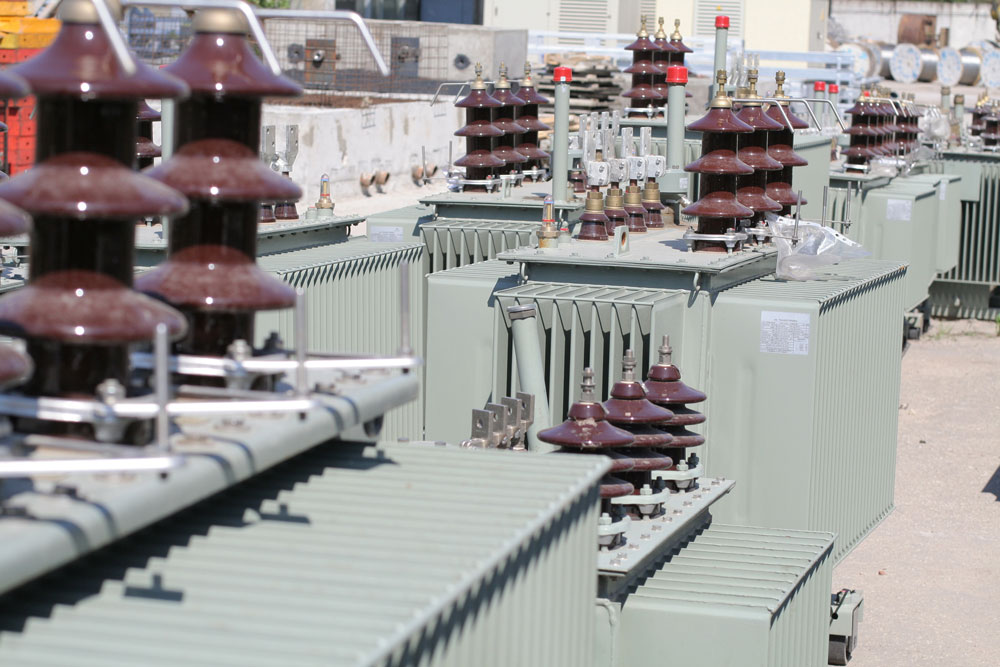Is Transformer Oil Dangerous?
 CONTENTS
CONTENTS
- What are PCBs?
- The dangers of PCBs
- What are the dangers of transformer oil?
- How to clean up a transformer oil spill
- Contact us today
Transformer oil is dangerous to be exposed to and can cause damage to a property and the environment when it spills. Some types of transformer oil contain polychlorinated biphenyls (PCBs) which are particularly harmful, and exposure to them is correlated with more severe health problems.
In the event of a leak or spill of transformer oil, we can help. Our oil spill cleaning specialists can contain the spill, clean up the substance, and dispose of the waste correctly. We have experience cleaning up lots of different kinds of oil as well as transformer oil including kerosene, diesel, and petrol.
Keep reading to learn more about transformer oil's dangers and how to clean up a spill or leakage.
What are PCBs?
PCBs are a group of man-made organic chemicals consisting of carbon, hydrogen, and chlorine atoms.
They were widely used in electrical equipment like transformers and capacitors for their ability to withstand high temperatures without catching fire or breaking down. In the UK, for example, the usage of PCBs became prevalent from the 1950s onwards.
However, it was later discovered in the 1970s that PCBs pose significant environmental and health risks, leading to strict regulations on their use and disposal. This led to a gradual phasing out of PCBs, culminating in comprehensive legislation aimed at controlling existing stocks and preventing new use.
The control over PCB production, use, and disposal is governed by both domestic laws as well as international agreements such as the Stockholm Convention on Persistent Organic Pollutants.
In response to these concerns, UK legislation now requires any holder of equipment containing more than five litres of pure or contaminated transformer oil with detectable levels of PCBs to dispose of it safely. You can learn more about PCBs and the UK legislation regarding them here.
Where can PCB-contaminated transformer oil be found?
- Aged electrical equipment: Older transformers, capacitors, and other electrical devices manufactured before restrictions came into place may still contain high concentrations if not already replaced or retrofitted.
- Closed industrial sites: Sites previously involved in heavy manufacturing, military bases, and older utility facilities often have legacy contamination issues.
The dangers of PCBs
Exposure to PCBs can lead to a range of serious health issues. These compounds are known carcinogens so prolonged exposure significantly increases the risk of developing cancer. According to research conducted by agencies such as the Environmental Protection Agency (EPA), there is evidence linking PCB exposure specifically to an increased risk of liver and skin cancers.
Beyond cancer risks, PCB exposure has also been associated with various other health problems. These include:
- Immune system suppression: Prolonged contact or ingestion can weaken the immune system's response.
- Nervous system damage: High levels of exposure have been linked with neurological issues such as learning difficulties and memory problems.
- Skin conditions: Direct contact might result in chloracne, a severe skin condition resembling acne that is very hard to treat.
- Reproductive issues: There is evidence suggesting that both male and female reproductive systems can be adversely affected by these chemicals.
What are the dangers of transformer oil?
Exposure to transformer oil that has not been contaminated with PCBs can still be hazardous. Skin contact with this type of oil may cause irritation or dermatitis. In more severe cases, prolonged exposure without personal protective equipment (PPE) could result in chemical burns or other skin conditions.
Inhalation of fumes from heated or burning transformer oil can irritate the respiratory system leading to discomfort or even long-term lung problems, too.
Transformer oil poses significant fire hazards due to its flammability under certain conditions, as well. A leak or spill near sources of ignition could result in fires that are particularly challenging to extinguish because they require specific types of firefighting agents designed for chemical fires.
How to clean up a transformer oil spill
Cleaning up a transformer oil spill requires immediate attention due to the potential hazards it poses. Before attempting to clean one up, it is crucial to understand that without proper training, PPE, and a spill kit, you should not undertake this task yourself.
It is recommended you contact oil spill cleaning professionals as soon as possible to clean it up thoroughly and safely for you. They will carry out the following phases:
- Containment: First, oil spill clean up professionals will stop the oil spreading further by using absorbent materials, booms, and barriers. This step is critical to minimise the potential environmental impact of the spill and make the clean-up process more manageable.
- Cleanup: Once contained, they will use absorbent pads or granules specifically meant for hydrocarbon-based liquids like transformer oil to soak up as much of the substance as possible.
- Waste disposal: Next, they will dispose of all used materials according to local regulations regarding hazardous waste. Improper disposal can lead to environmental damage and hefty fines.
You can learn more about how professionals clean up oil spills in this blog.
Contact us today
Our oil remediation experts have many years of experience tackling standard and environmental spills, no matter the kind of oil that has spilled or the size of the spill.
Get in touch by calling 0208 066 0360 or email enquiries@icecleaning.co.uk to find out more about our oil spill cleaning services.

Speak with me today,
I’m here to help
By asking you a few questions either via phone or email I can immediately provide a realistic estimation of the cost.

Why choose us?
- Cater to a wide variety of cleaning situations
- Nationwide coverage, available 24/7
- Cater to commercial and domestic clients
- Free survey provided prior to quotation
- Emergency response team
- Offer a bespoke service designed to suit all your needs
- All technicians hold professional health and safety qualifications, including BICSc, IOSH, Dewpoint Professional & Safe Contractor
We’re fully accredited
We place best practise, professional expertise and health and safety at the core of our business. We’re fully compliant with all legal obligations. You can view a list of our accreditations below, or visit our Health & Safety page for more information.











-RGB-small.1707319151.jpg)




















